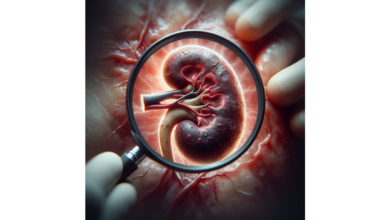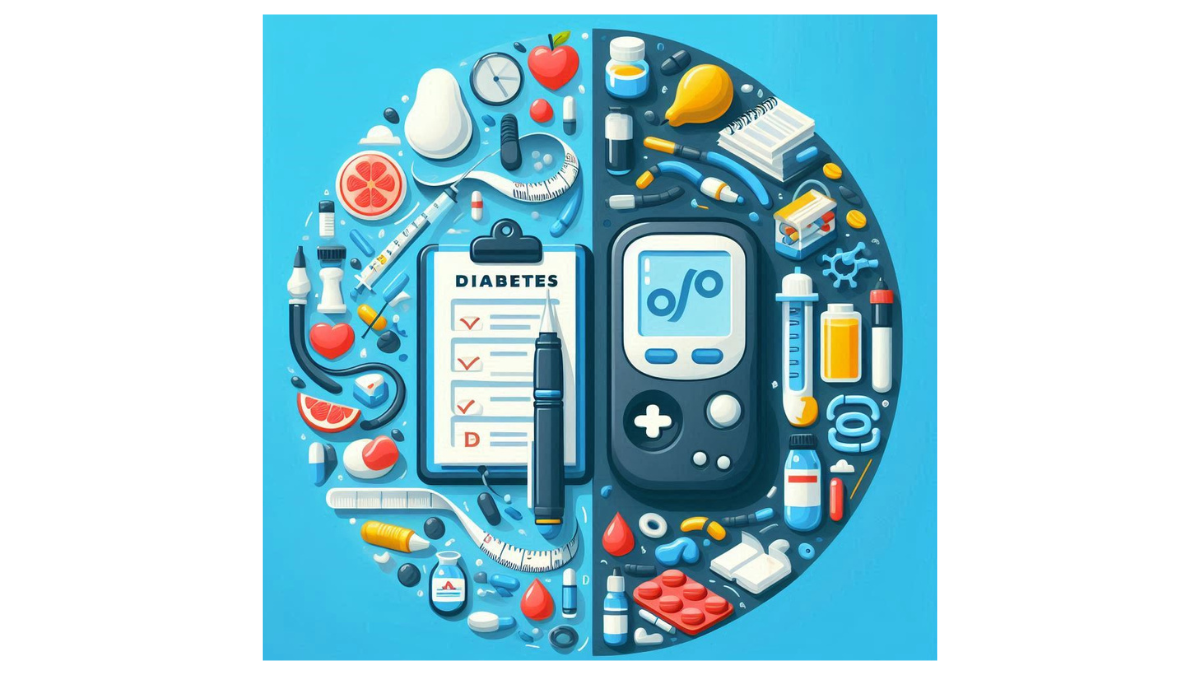Understanding Your Body: A Guide to Health

Understanding Your Body: A Guide to Health – Understanding your body is the first step towards a healthy lifestyle. The human body is an intricate machine made up of various components working together in perfect harmony. Let’s dive into some essential aspects of its design and function.
Basic Anatomy
At its core, the human body consists of cells, the fundamental units of life. These cells group together to form tissues, which in turn form organs. Each organ has a specific function that contributes to the overall operation of your body. A simple way to understand the basic anatomy is through the major organ systems, each playing a crucial role in maintaining health. Here are the primary components:
- Cells: The smallest building blocks of life.
- Tissues: Groups of similar cells that perform a specific function (e.g., muscle tissue, connective tissue).
- Organs: Structures made up of different tissues working together (e.g., the heart, lungs).
- Organ Systems: Groups of organs that perform related functions (e.g., the digestive system).
For example, when I was learning about the heart, I found it fascinating how this single organ, roughly the size of a fist, pumps about 2,000 gallons of blood every day!
Systems of the Body
The human body comprises several systems, each responsible for particular bodily functions. Here’s a brief overview of the major systems:
- Circulatory System: Comprising the heart, blood vessels, and blood, this system transports oxygen, nutrients, and hormones throughout the body while removing waste products.
- Respiratory System: This system includes the lungs and air passages. Its primary function is to facilitate breathing, allowing oxygen to enter the bloodstream and carbon dioxide to be expelled.
- Digestive System: Encompassing the mouth, esophagus, stomach, intestines, and accessory organs, the digestive system processes food, absorbs nutrients, and eliminates waste.
- Nervous System: Comprising the brain, spinal cord, and nerves, this system is responsible for sending signals to and from different parts of the body, allowing us to react to our environment.
- Muscular System: Made up of skeletal, smooth, and cardiac muscles, this system enables movement, posture, and even digestion through involuntary muscle contractions.
- Skeletal System: Comprising bones, cartilage, and ligaments, the skeletal system provides structure, support, and protects vital organs.
- Endocrine System: This system uses hormones to regulate various functions, including metabolism, growth, and mood.
- Immune System: A complex network of cells and organs that work together to defend the body against infections and diseases.
Understanding these systems is crucial for anyone looking to optimize their health. By knowing how everything works, you can make informed choices about your lifestyle, nutrition, and exercise. As we continue exploring the intricate relationship between these systems, the importance of taking care of your body becomes even clearer. The more you understand “A Guide to Health,” the better equipped you are to ensure your well-being. In the next section, we will delve into the vital role of nutrition and diet in maintaining a well-functioning human body.
Nutrition and Diet
Now that we’ve gained a better understanding of the human body and its systems, it’s time to focus on one of the most crucial elements of health: nutrition. What we eat directly affects how our bodies function. A balanced diet isn’t just a guideline; it’s a foundation for good health.
Importance of a Balanced Diet
So, why is a balanced diet so essential? Simply put, what you consume plays a significant role in your overall well-being. A balanced diet provides your body with the nutrients it needs to operate efficiently, helping you maintain energy levels, fight off illness, and reduce the risk of chronic diseases. Imagine trying to run a car without the right fuel; it simply won’t work. Just like that vehicle needs high-quality fuel to run smoothly, your body requires a variety of foods to function optimally. Here are some key benefits of maintaining a balanced diet:
- Energy Boost: Consuming a mix of carbohydrates, proteins, and fats can keep your energy levels steady throughout the day.
- Weight Management: A balanced diet helps regulate body weight, preventing both undernourishment and obesity.
- Disease Prevention: Nutrient-rich foods can reduce the risk of illnesses such as diabetes, heart disease, and certain cancers.
- Mental Clarity: Proper nutrition supports brain function, enhancing memory and focus. Personally, I’ve noticed that when I prioritize fruits, vegetables, and whole grains in my meals, my concentration improves significantly.
Nutrients and Their Functions
Understanding the importance of nutrients is key to mastering your diet. Each type of nutrient plays a distinct role in keeping your body operating smoothly. Here’s a breakdown of essential nutrient categories:
- Carbohydrates:
- Function: They are the body’s primary source of energy.
- Sources: Fruits, vegetables, whole grains, and legumes.
- Proteins:
- Function: Crucial for muscle repair, growth, and the production of enzymes and hormones.
- Sources: Meat, fish, dairy, legumes, and nuts.
- Fats:
- Function: Important for hormone production, insulation, and absorbing fat-soluble vitamins (A, D, E, and K).
- Sources: Avocados, nuts, seeds, and olive oil.
- Vitamins and Minerals:
- Function: Vital for immune function, energy production, and bone health.
- Sources: A wide variety of fruits and vegetables, as well as dairy products and whole grains.
- Water:
- Function: Essential for maintaining hydration, digestion, and nutrient transport.
- Sources: Water, fruits, and vegetables.
Incorporating a colorful variety of foods into your meals is not only enjoyable but also ensures that you are receiving these key nutrients. Aim to fill your plate with different colors; not only does it make your meal visually appealing, but it also guarantees you are getting a range of vitamins and minerals. As we transition to the next topic, the connection between nutrition and exercise becomes increasingly evident. A nutritious diet fuels our bodies for optimal performance, so let’s explore how exercise and fitness can enhance our overall health.
Exercise and Fitness
With a solid understanding of nutrition in place, it’s time to explore another vital aspect of maintaining your health: exercise and fitness. Just as a balanced diet fuels your body, regular physical activity keeps it running smoothly. Let’s dive into the world of exercise to discover its incredible benefits and the different types available for you.
Types of Exercises
Exercise doesn’t come in a one-size-fits-all package. There are various categories of exercises, each offering unique benefits. Depending on your goals, preferences, and physical ability, you can find an activity that suits you. Here’s a breakdown of some popular types of exercises:
- Aerobic Exercises(Cardio):
- Description: These exercises increase your heart rate and breathing, promoting better cardiovascular health.
- Examples: Running, cycling, swimming, and dancing.
- Personal Anecdote: I remember the exhilaration of joining a local running club; not only did I improve my endurance, but I also made some lasting friendships!
- Strength Training:
- Description: Focused on building muscle strength and endurance by using weights or resistance.
- Examples: Weightlifting, resistance band exercises, and bodyweight workouts (like push-ups and squats).
- Tip: Even incorporating everyday objects, such as water bottles, can be an easy way to start strength training at home.
- Flexibility Exercises:
- Description: Aimed at enhancing the elasticity of your muscles and joints.
- Examples: Stretching and yoga.
- Benefit: Regular flexibility exercises can alleviate stiffness and discomfort, especially after long periods of sitting.
- Balance Exercises:
- Description: Focus on improving stability and coordination, which is crucial for overall body control.
- Examples: Tai chi and certain yoga poses.
- Note: Balance exercises are particularly important as we age, as they can help prevent falls.
Choosing a combination of these exercise types can lead to a well-rounded fitness regimen that supports your overall health goals.
Benefits of Regular Physical Activity
Now that you’re familiar with the types of exercises, let’s delve into the numerous benefits that regular physical activity offers.
- Physical Health:
- Engaging in regular exercise helps maintain a healthy weight, regulate blood pressure, and improve heart health.
- Mental Health:
- Physical activity triggers the release of endorphins, often referred to as “feel-good” hormones. This can lead to reduced feelings of anxiety and depression.
- Personal Experience: I’ve found that after a good workout session, my stress levels dip significantly, allowing me to tackle challenges with a clearer mindset.
- Increased Energy:
- Regular exercise enhances overall stamina. You might be surprised how consistent physical activity can make everyday tasks feel less daunting.
- Improved Sleep:
- Engaging in regular workouts can help you fall asleep faster and deepen your sleep cycle, leading to better rejuvenation.
- Social Connections:
- Activities like group classes and team sports are excellent ways to meet new people and create social bonds.
In summary, a well-rounded exercise routine complements your nutritious diet and enhances your overall well-being. Now that we’ve explored the significance of exercise, let’s shift our focus toward an often-overlooked aspect of health: mental well-being. This involves understanding stress and finding effective strategies for mental wellness.
Mental Health and Well-being
As we transition from the realm of physical fitness to mental health, it’s essential to recognize how intertwined these aspects are. Just as our bodies require proper nutrition and exercise, our minds need attention and care to thrive. Let’s explore the concept of stress and develop strategies that promote mental wellness.
Understanding Stress
Stress is a natural response to challenging situations, signaling our bodies to react to perceived dangers. While some stress can be beneficial and spur us into action, chronic stress can significantly impact our overall mental health. Here are some key points to understand about stress:
- Types of Stress:
- Acute Stress: Short-term stress from recent events (e.g., meeting deadlines).
- Chronic Stress: Long-term stress that can stem from ongoing situations (e.g., financial difficulties or job dissatisfaction).
- Physical Responses:
- Stress triggers a cascade of physiological changes, including increased heart rate, rapid breathing, and heightened alertness. While this fight-or-flight response can be beneficial in emergencies, persistent stress can lead to fatigue, headaches, and other physical ailments.
- Signs of Stress:
- Difficulty concentrating
- Irritability
- Changes in sleep patterns
- Withdrawn behavior
Understanding stress allows you to better recognize its impact on your life. It’s important to take note of your stressors and how they affect you personally. For instance, I used to struggle with stress around exam periods until I identified my triggers and devised coping strategies.
Strategies for Mental Wellness
Fortunately, there are effective strategies for managing stress and promoting mental wellness. Here are some methods you can incorporate into your daily routine:
- Mindfulness and Meditation:
- Practicing mindfulness involves being present in the moment, which can help reduce anxiety. Meditation, even for just 10 minutes a day, can calm your mind and improve focus.
- Tip: Explore free apps or online resources that offer guided meditations.
- Physical Activity:
- As we discussed earlier, regular exercise is not only beneficial for physical health but also significantly alleviates stress. Aim for at least 30 minutes of activity most days.
- Healthy Connections:
- Surrounding yourself with a support system can help lighten emotional burdens. Reach out to friends, family, or mental health professionals when feeling overwhelmed.
- Personal Reminder: I’ve often felt reassured after engaging in heart-to-heart conversations with friends, reminding me that I’m not alone in my struggles.
- Prioritize Self-Care:
- Engage in activities that bring you joy and relaxation, whether that’s reading, painting, gardening, or enjoying a warm bath.
- Time Management:
- Assess your commitments and prioritize tasks. Breaking down big projects into manageable chunks can prevent overwhelm.
- Limit Screen Time:
- Taking breaks from electronic devices, especially social media, can lessen the pressure many feel from constant notifications and comparisons.
By incorporating these strategies into your lifestyle, you can create a strong foundation for your mental well-being. As we conclude this exploration of mental health, let’s move to another vital aspect: the importance of sleep and rest, which plays a crucial role in both mental and physical health.
Sleep and Rest
As we pivot our focus to sleep and rest, it’s essential to recognize the critical role they play in our overall well-being. Just like nutrition and physical activity, sleep is fundamental for a balanced lifestyle. In fact, quality sleep is often the unsung hero of good health, often overlooked despite its profound impact. Let’s dive into why quality sleep is so crucial and explore effective tips to enhance your sleep experience.
Importance of Quality Sleep
Quality sleep is not merely about the number of hours you spend in bed; it’s about achieving restorative sleep cycles that leave you feeling refreshed each morning. Here are some of the compelling reasons why quality sleep matters:
- Physical Health: Adequate sleep aids in healing and repair of the heart and blood vessels. It contributes to better immune function, reducing susceptibility to illness.
- Mental Clarity: While you sleep, your brain processes information, consolidates memories, and flushes out toxins. This is why sleep deprivation can lead to foggy thinking and poor concentration.
- Emotional Balance: Quality sleep regulates mood and helps manage stress. A well-rested mind allows for better emotional resilience, making it easier to handle daily challenges.
- Weight Management: Research shows that poor sleep can disrupt hormones related to hunger and appetite, potentially leading to weight gain.
- Personal Experience: I remember a time when I was constantly sleep-deprived while balancing work and studying. I noticed that my patience was thinner, my energy levels plummeted, and my focus was inconsistent. Prioritizing sleep improved not just my productivity but also my mood!
Tips for Better Sleep
Improving your sleep quality doesn’t have to be a daunting task. Here are several practical tips to help you achieve more restful nights:
- Establish a Sleep Schedule:
- Go to bed and wake up at the same time each day, even on weekends, to regulate your body’s internal clock. Consistency is key!
- Create a Relaxing Bedtime Routine:
- Engage in calming activities before bed, such as reading, gentle stretching, or listening to soothing music. This signals your body that it’s time to wind down.
- Limit Screen Time:
- The blue light emitted by screens can interfere with melatonin production, making it harder to fall asleep. Aim to disconnect from digital devices at least an hour before sleep.
- Optimize Your Sleep Environment:
- Ensure your bedroom is dark, quiet, and cool. Blackout curtains, white noise machines, or fans can help create a conducive sleep environment.
- Watch Your Diet:
- Avoid heavy meals, caffeine, and alcohol close to bedtime. Instead, opt for light snacks if you’re hungry, such as a banana or a small handful of nuts.
- Stay Active:
- Regular physical activity promotes better sleep, but try to avoid exercising too close to bedtime, which can have the opposite effect.
- Reduce Naps:
- While short naps can be refreshing, long naps during the day can interfere with nighttime sleep. If you need to nap, aim for no more than 20-30 minutes.
By integrating these tips into your routine, you can enhance your sleep quality, which in turn supports your mental and physical health. As we wrap up our discussion on sleep and rest, let’s move forward to hygiene and personal care, which play equally essential roles in ensuring your overall well-being.
Hygiene and Personal Care
As we transition from the importance of sleep and rest, let’s take a closer look at hygiene and personal care, which are foundational elements for maintaining your overall health. Taking care of your body not only enhances your physical appearance but also boosts your confidence and emotional well-being. In this section, we’ll discuss two vital areas of personal care: skin care and oral health.
Skin Care
Your skin is the largest organ in your body and serves as a protective barrier against various environmental factors. With that in mind, establishing a good skin care routine is essential for promoting healthy skin. Here are some key components to consider:
- Cleansing:
- Frequency: Clean your skin daily to remove dirt, oil, and impurities. For most people, cleansing twice a day is ideal—once in the morning and once before bed.
- Product Choice: Use a gentle cleanser suited for your skin type (oily, dry, combination, or sensitive).
- Moisturizing:
- Keeping your skin hydrated is crucial, regardless of its type. For oily skin, opt for lightweight, oil-free moisturizers; for dry skin, use thicker creams.
- Personal Tip: I always carry a small moisturizer with me to apply throughout the day, especially in winter when my skin tends to dry out.
- Sun Protection:
- Protecting your skin from sun damage is non-negotiable. Wear a broad-spectrum sunscreen with at least SPF 30 every day, even on cloudy days.
- Annotation: Always reapply sunscreen every two hours if you’re outdoors.
- Exfoliation:
- Exfoliate your skin 1-3 times a week to remove dead skin cells, allowing for a brighter complexion. But be cautious—over-exfoliating can irritate the skin.
Taking care of your skin doesn’t have to require a lengthy regimen; consistency is key. A simple routine can yield remarkable results over time.
Oral Health
Just as important as skin care is maintaining good oral hygiene. Healthy teeth and gums not only contribute to your appearance but can also affect your overall health. Here are some core practices to ensure optimal oral health:
- Regular Brushing:
- Brush your teeth at least twice a day using a fluoride toothpaste. Invest in a good quality toothbrush, preferably an electric one, to effectively remove plaque.
- Flossing:
- Floss daily to clean between your teeth and prevent gum disease. This step is often neglected, but it’s crucial for maintaining healthy gums.
- Routine Check-ups:
- Schedule dental check-ups every six months for professional cleaning and examination. Regular visits can catch issues early before they become severe.
- Dietary Considerations:
- Limit sugary snacks and drinks that can lead to cavities. Instead, choose snacks that promote oral health, like nuts, cheese, or fresh fruits and vegetables.
- Personal Anecdote: I distinctly remember how my perception of oral care changed after my dentist shared how certain foods can either help or harm my teeth. Now, I make a conscious effort to incorporate more teeth-friendly snacks into my diet!
In summary, taking care of your skin and oral health goes hand in hand with overall wellness. These personal care practices not only enhance your appearance but significantly influence your physical and mental health. As we continue our holistic approach to health, let’s pivot to an essential topic: the importance of regular health check-ups to ensure that we stay ahead of potential health issues.
Regular Health Check-ups
As we conclude our exploration of hygiene and personal care, it’s vital to address one of the most proactive steps you can take in your overall health journey: regular health check-ups. While daily self-care routines are essential, health screenings and established relationships with healthcare providers can make a significant difference in early detection and prevention of illness.
Importance of Health Screenings
Health screenings are an essential part of maintaining good health. They allow for the early detection of potential health issues before they develop into more significant problems. Here are some key reasons why you should prioritize regular health screenings:
- Early Detection:
- Many conditions, such as diabetes, high blood pressure, and certain cancers, often present no symptoms in their early stages. Regular screenings help identify these issues early, often leading to more effective treatment.
- Prevention:
- Regular check-ups can help you understand your health risks based on family history and lifestyle. This insight can guide preventive measures, such as vaccinations, lifestyle adjustments, or medications.
- Monitoring Health Changes:
- For those with existing health conditions, routine visits allow doctors to monitor your health status and adjust treatment plans as necessary.
- Personal Anecdote: I recall my experience with a routine blood test that revealed slightly elevated cholesterol levels. Addressing this concern early with my doctor allowed me to make dietary changes that improved my numbers significantly.
- Peace of Mind:
- Knowledge is power. Knowing that you are monitoring your health can relieve the anxiety of uncertainty, making it easier to focus on other aspects of your life.
Remember, the specific screenings you’ll need depend on your age, sex, and health history, so don’t hesitate to discuss what’s right for you during your visits.
Building a Relationship with Your Doctor
Equally important as the screenings themselves is the relationship you build with your healthcare provider. Establishing a strong rapport can enhance your healthcare experience in multiple ways:
- Open Communication:
- A trusting relationship allows you to communicate openly about your concerns, symptoms, and lifestyle factors. This transparency helps your doctor provide personalized recommendations tailored to your needs.
- Continuity of Care:
- A consistent healthcare provider can better track your medical history, leading to more informed decisions regarding your care. When moving, try to find a provider who can continue where your previous one left off.
- Understanding Your Health:
- Your doctor can help you understand your body and educate you about preventive measures, lifestyle choices, and treatment options related to your health conditions.
- Encouragement:
- Regular check-ins foster accountability. A supportive doctor can encourage you to stay on track with health goals and motivate you to prioritize your well-being.
In cultivating this vital relationship with your doctor, consider scheduling annual check-ups or more frequent visits if you have specific health concerns. In summary, regular health screenings and a solid relationship with your healthcare provider are crucial components of a holistic health strategy. By taking these proactive steps, you empower yourself to lead a healthier, happier life. As we wrap up our comprehensive guide to health, always remember that taking small, informed actions can lead to significant, positive changes in your well-being over time.
You might also find this article helpful Happy Healthy and Whole : The Power of Positive Habits






One Comment